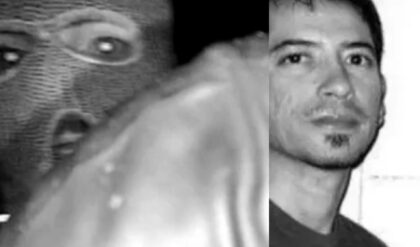Quirky fan theory suggests that Maggie Smith’s McGonagall might have a hidden gambling addiction, driving all her Quidditch decisions.
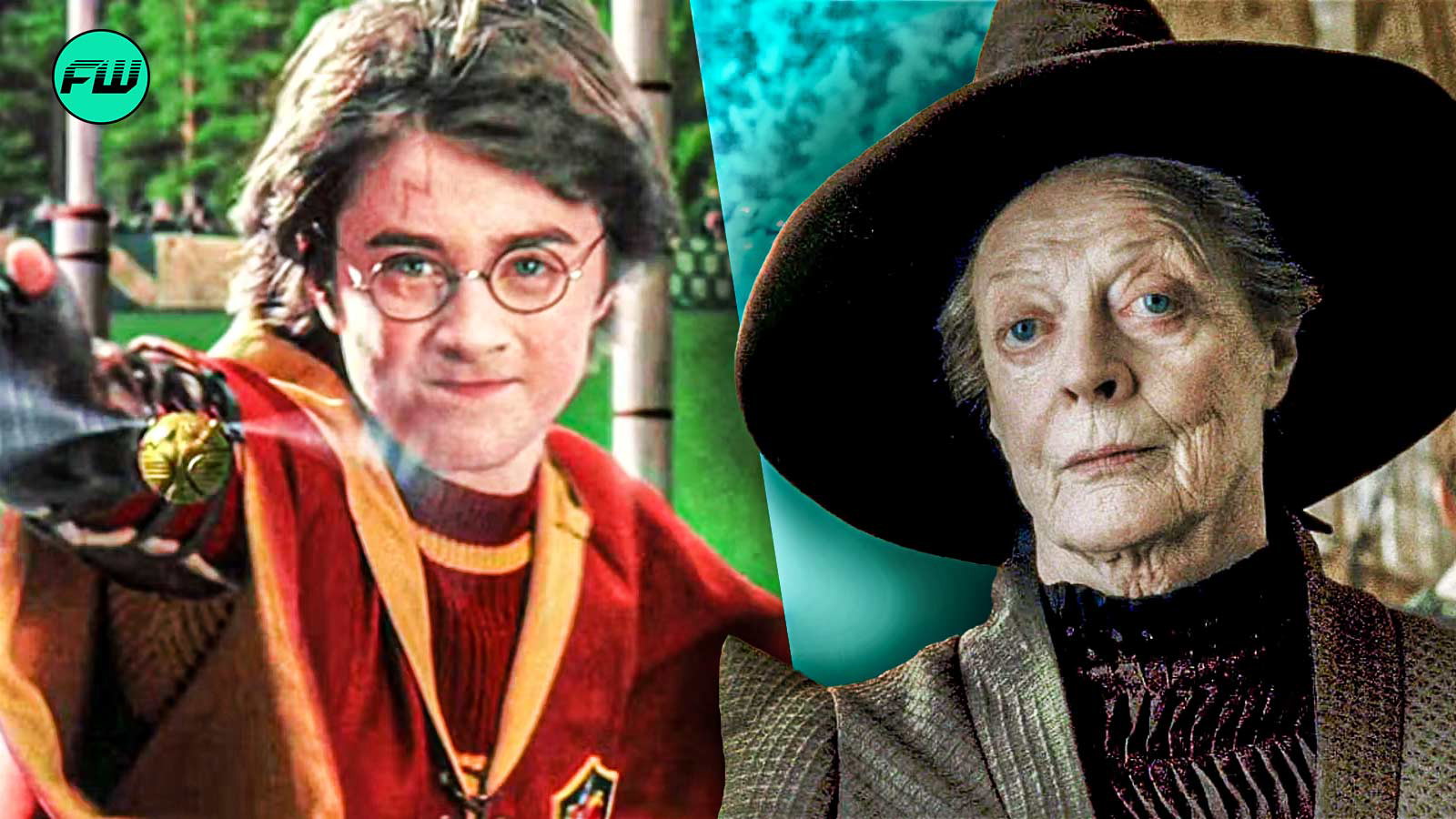
Renowned for their impressive and sometimes bizarre theories about J.K. Rowling’s Harry Potter series, Potterheads once again came up with quirky speculations about one particularly fan-favorite character and their penchant for Quidditch. Making outlandish connections between Maggie Smith’s Minerva McGonagall and her motivations for hiring Harry Potter for Quidditch, fans hinted at a gambling issue.
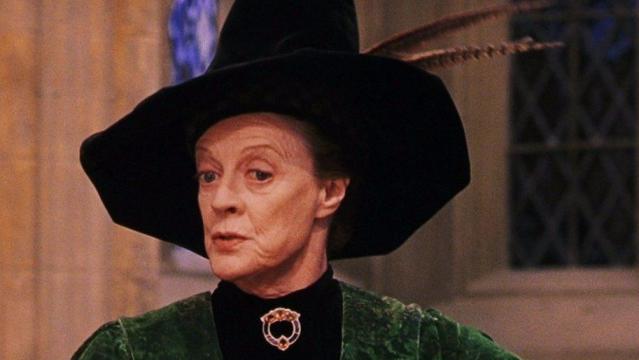 Maggie Smith as Professor Minerva McGonagall | Warner Bros.
Maggie Smith as Professor Minerva McGonagall | Warner Bros.
Almost turning J.K. Rowling’s magical world of wizards into a high-stakes gambling and casino-themed tale, this particular fan theory simply stretched the boundaries of the original narrative. Birthing unexpected interpretations of how Professor McGonagall’s decision to recruit Harry for Quidditch was driven by a secret gambling addiction, the fan community put a hilarious spin.
Absurd Fan Theory Reveals Professor McGonagall’s Secret Gambling Addiction
From the vast world of Harry Potter fan theories, one particular Reddit post caught our attention for its sheer audacity and comedic charm. Posted by u/ShonSnow, the theory addressed the excitement and rush surrounding the Quidditch matches at Hogwarts, which then highlighted Maggie Smith’s character Professor Minerva McGonagall, and her involvement in the game.
Quite shockingly, after addressing Professor McGonagall’s desperation to hire Harry Potter for the Gryffindor Quidditch team, the fan theory proposed the notion that her recruitment decision was perhaps influenced by a secret, high-stakes gambling addiction. Well, the offbeat theory basically claimed that McGonagall, who is usually known as a stern and disciplined professor, is actually a closeted gambler with an inclination towards risky bets.
The hilariously absurd theory suggested that McGonagall’s gambling habit not only led to great personal anxiety but also served as a driving force behind her recruitment decisions. According to the Redditor, McGonagall’s desperate attempt to make her bets pay off led her to use her influence as Head of Gryffindor House to ensure that the Quidditch team had the best chance of winning.
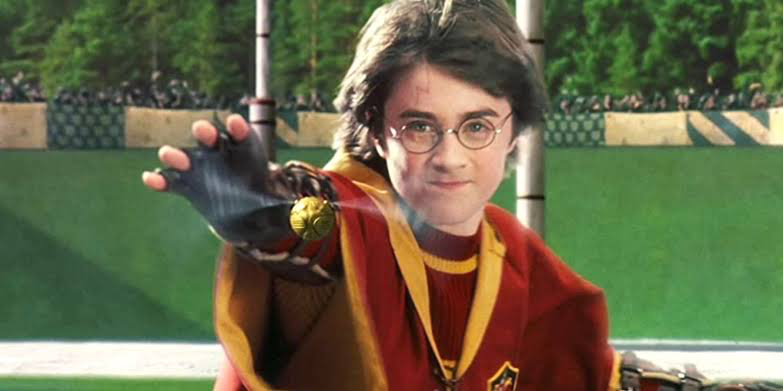 A still from Harry’s first Quidditch match at Hogwarts | Warner Bros.
A still from Harry’s first Quidditch match at Hogwarts | Warner Bros.
Therefore, immediately after watching Harry fly his broomstick and bring back Neville’s Remembrall from Draco, Maggie Smith’s character rushed to recruit Harry as a Seeker. So it seems that the theory proposed that it was allegedly part of her grand scheme to secure a Quidditch victory that would ultimately help her win high-stakes bets.
Fans Support the Comic and Audacious Notion About Maggie Smith’s Character
Now comes the best part where the fan theory gained additional comedic fuel from other Redditors who added more layers to the theory by suggesting that Maggie Smith’s character wasn’t the only one involved in the betting. According to comments from other netizens, Professor McGonagall’s gambling was so influential that it corrupted not just her own decisions, but also those of her colleagues.
Potterheads assembled in the comment section and added to the absurdity of the theory by framing their own reasons behind each character’s behavior during the Quidditch match at Hogwarts. Specifically aiming at the professors, fans added an amusing layer about how Alan Rickman‘s character Severus Snape was unaccepted at the teacher’s betting pool, which led him to brood about it during the matches.
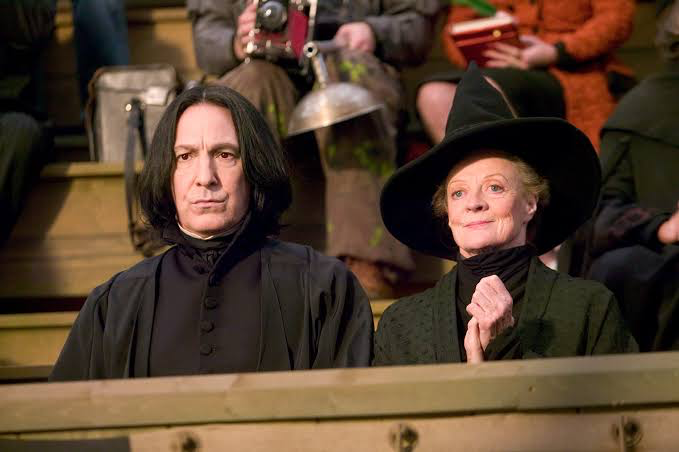 Professor Snape and McGonagall at a Quidditch match | Warner Bros.
Professor Snape and McGonagall at a Quidditch match | Warner Bros.
In the end, while the theory is obviously a humorous exaggeration, it undoubtedly tapped into some significant elements of the storyline. Take, for example, McGonagall’s love for Quidditch, and her fierce loyalty to Gryffindor House is well-documented. Yet, the theory playfully reinterpreted her dedication as a result of her secret gambling habit, rather than just her evident competitiveness and house pride.

